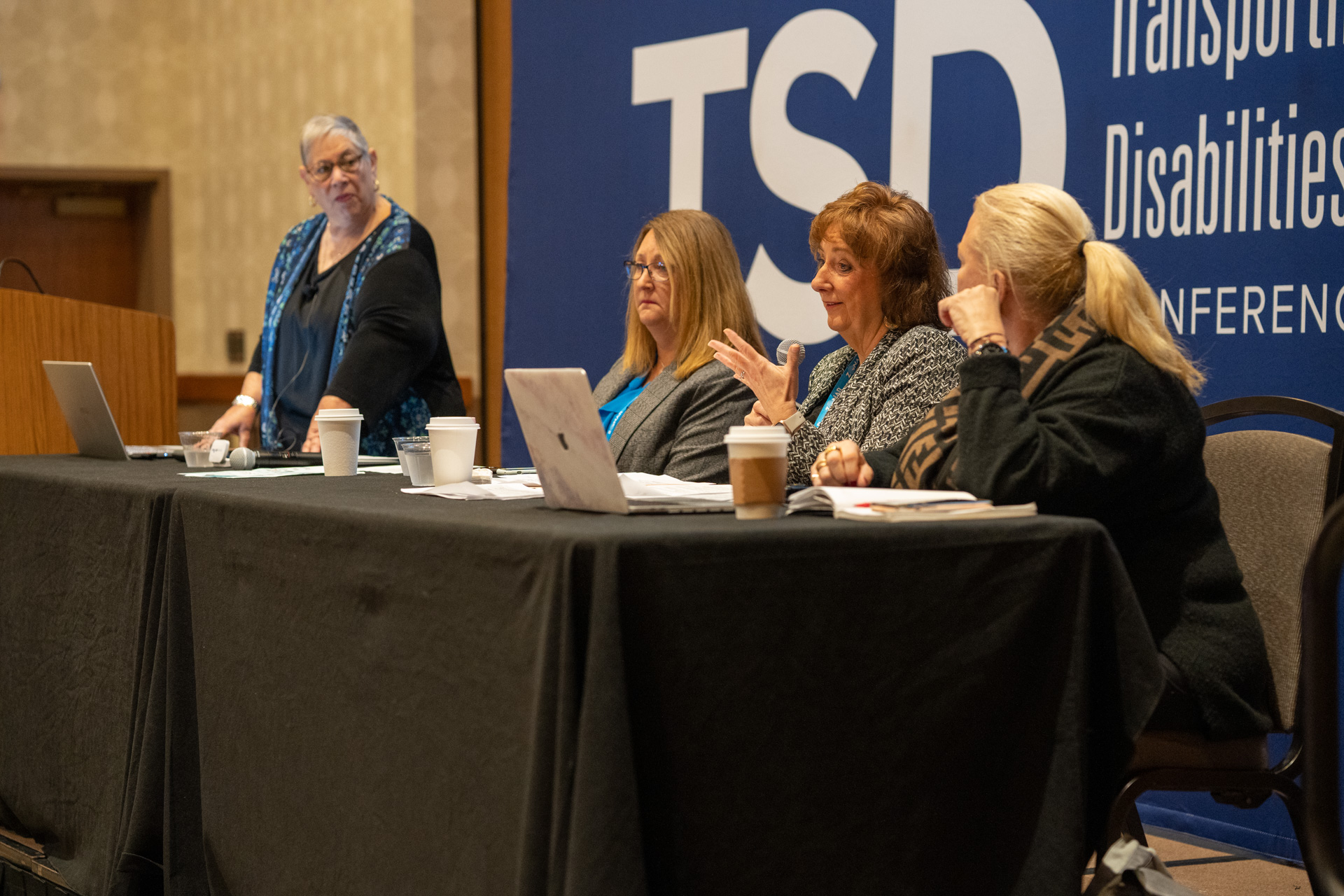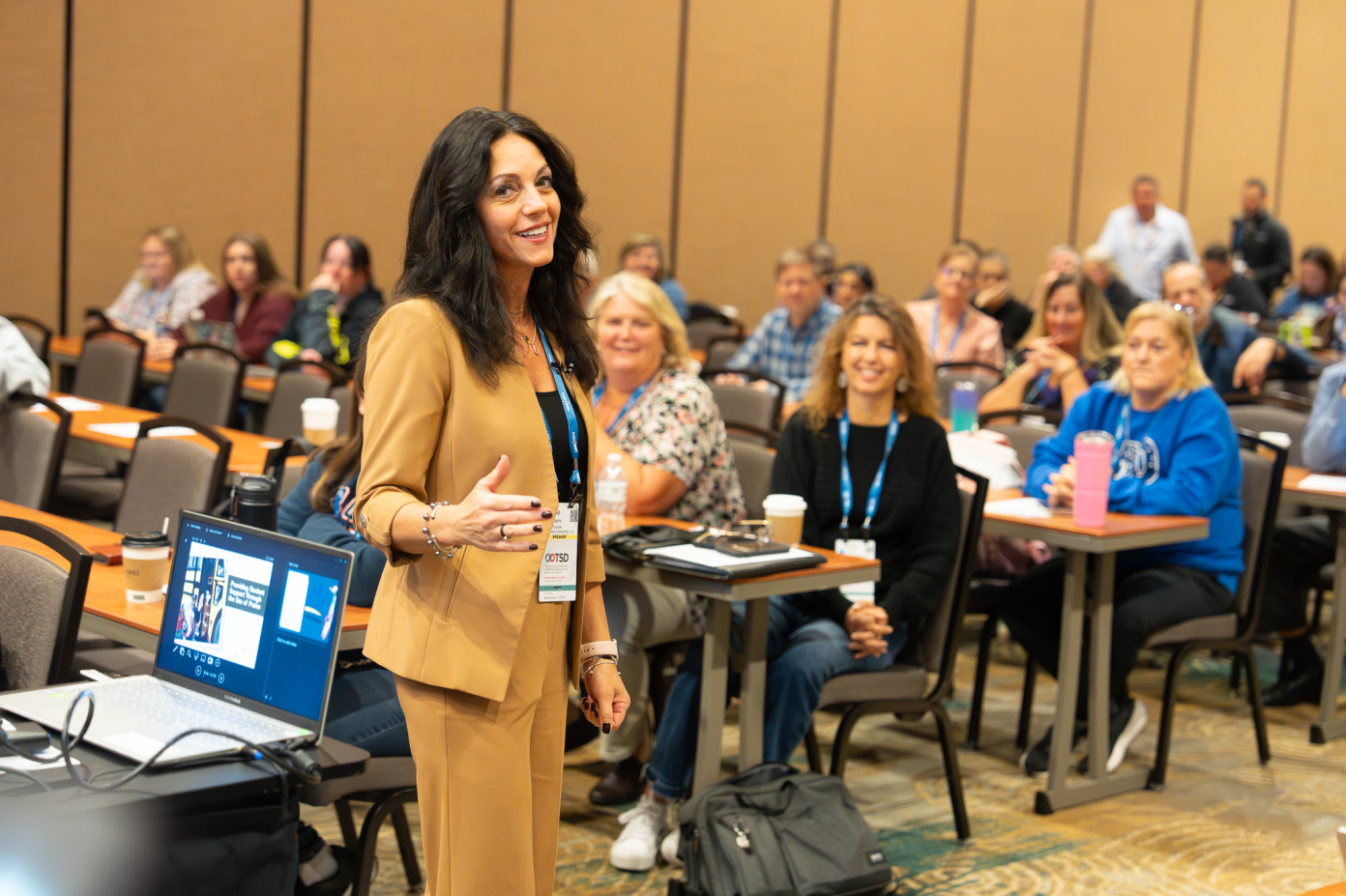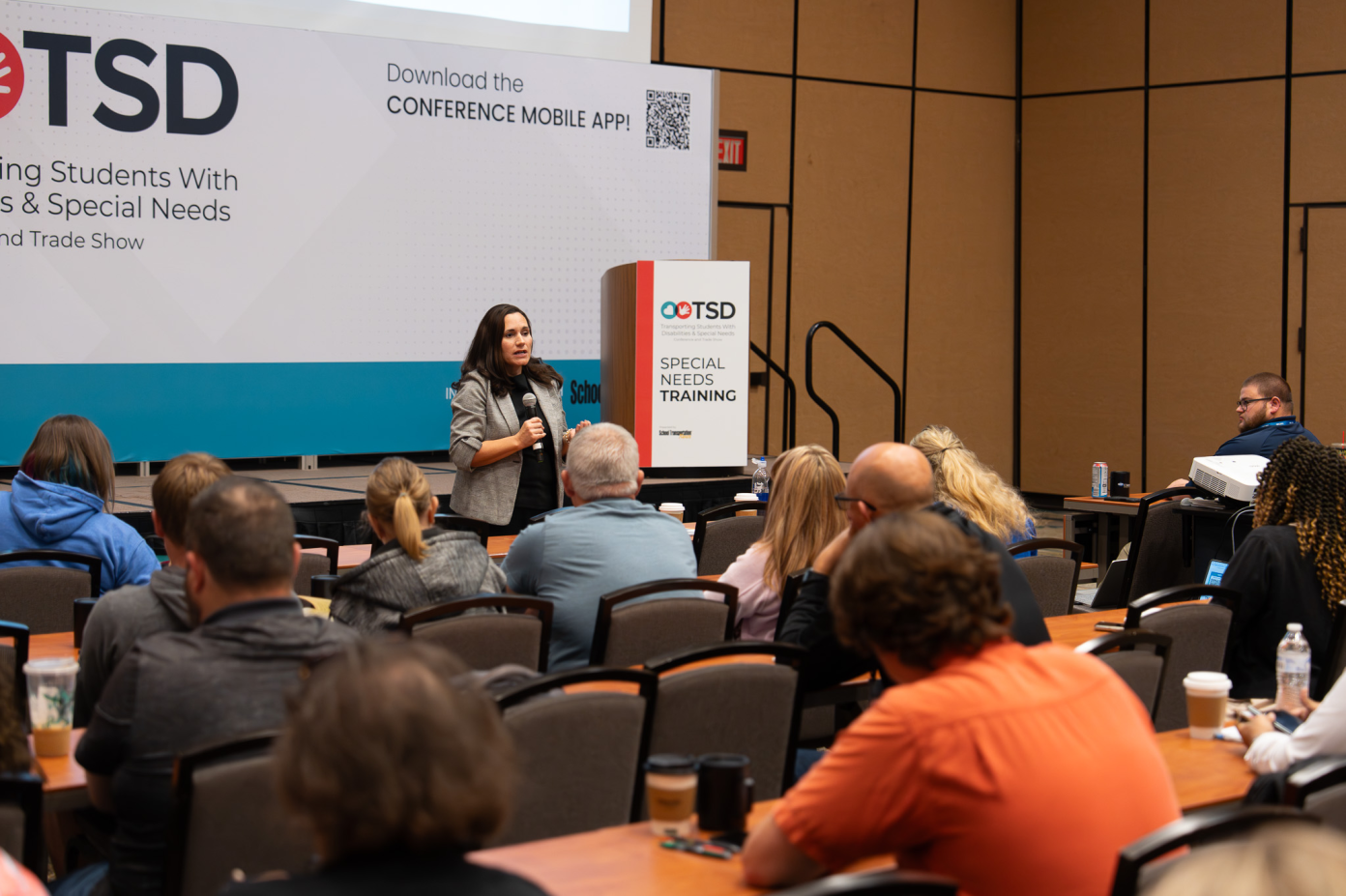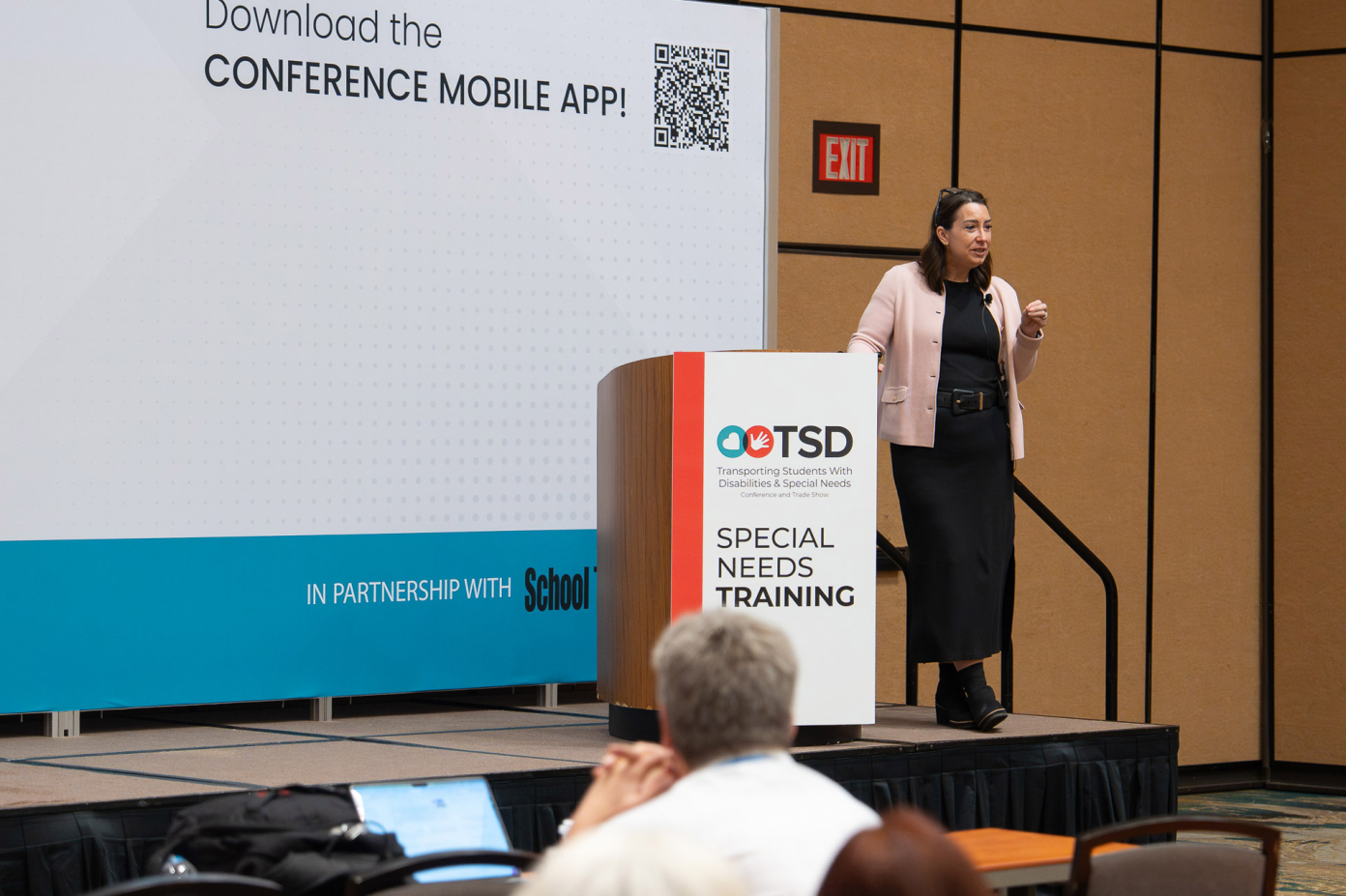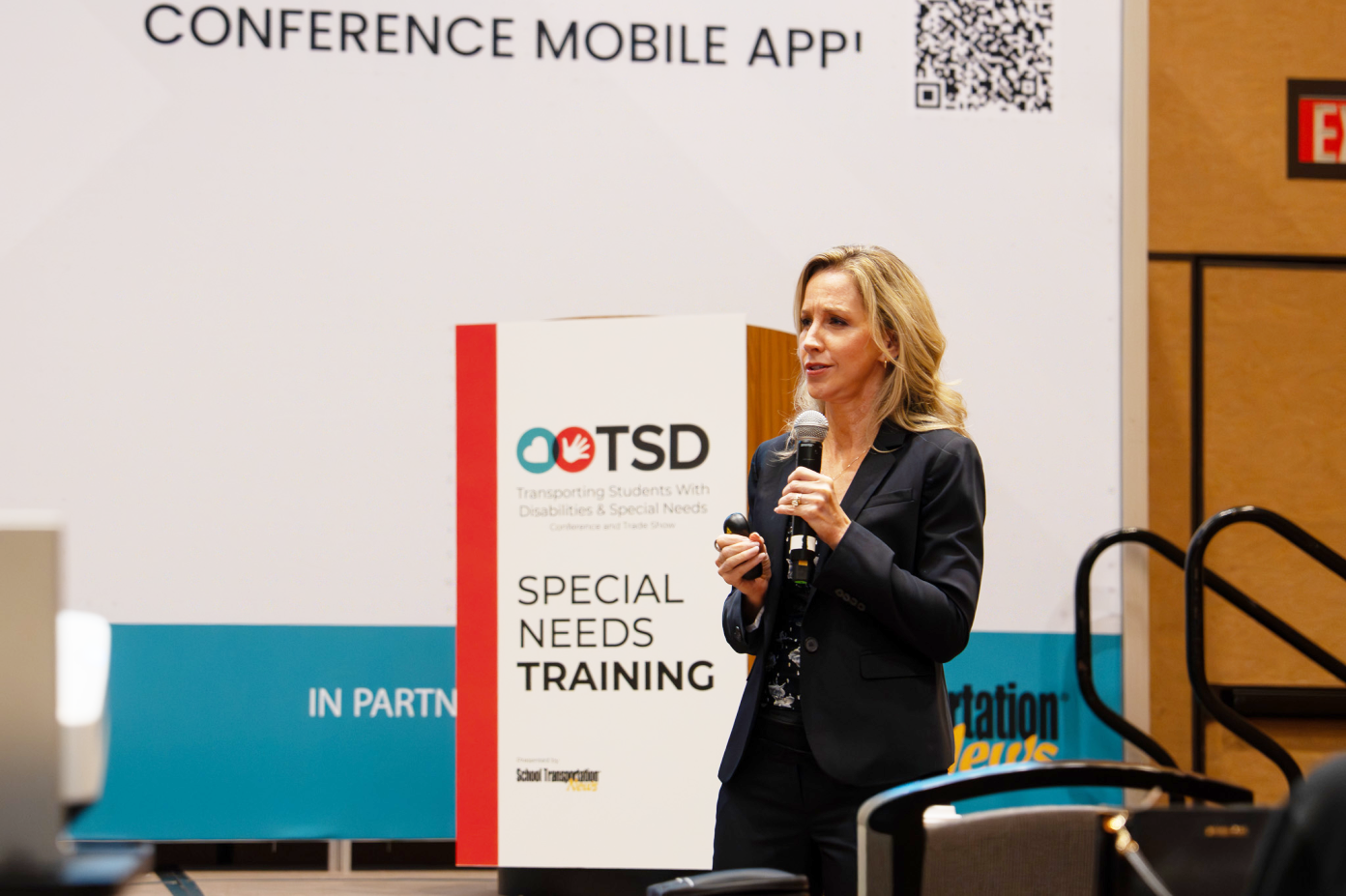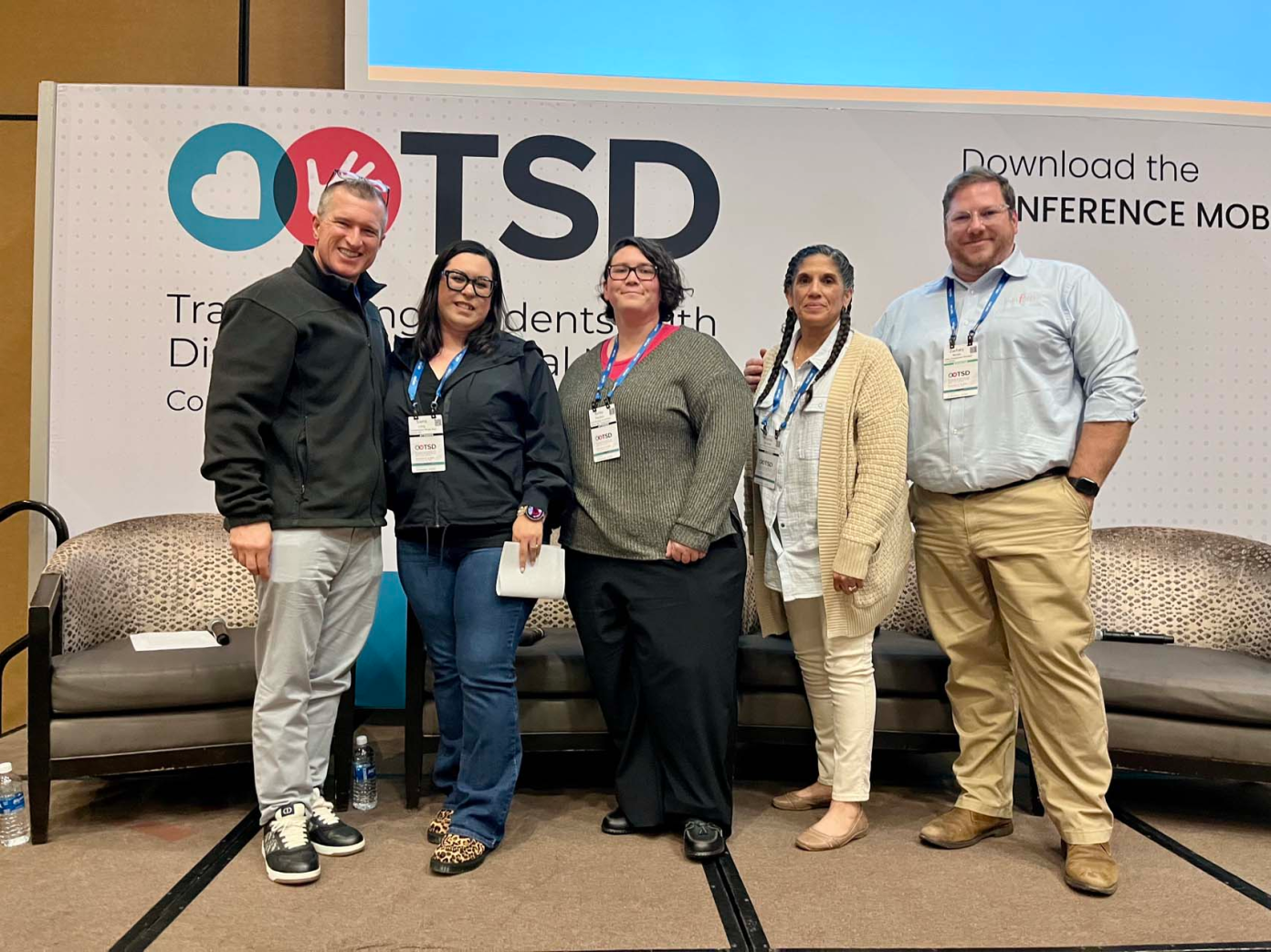FRISCO, Texas — A general session panel consisting of Tenured Faculty members for the Transporting Students with Disabilities and Special Needs Conference discussed the importance of communication when transporting the nation’s most precious and at-risk cargo.
The general session on Nov. 11, “Navigating IDEA: Implementing Appropriate Transportation Services for Children with Disabilities,” was facilitated by TSD Tenured Faculty member Linda F. Bluth, Ed.D., and engaged audience members by recounting scenarios and talking through the more challenging and unclear aspects of the Individuals with Disabilities Education Act (IDEA).
The panel also featured fellow Tenured Faculty members Alexandra Robinson and Sue Shutrump, and the latest addition Launi Schmutz-Harden.
Bluth led off the session by noting the increase in alternative and non-yellow school bus services being offered to school districts that are suffering from a driver shortage. She said nowhere in IDEA does it call for school buses to transport students with disabilities and special needs. Instead, federal law allows school districts to utilize any vehicle that is authorized by state law.
She added that student transportation services need to evolve, and that includes using third-party providers. But, she cautioned that uniform best practices by these companies do not exist, and it should be the job of the school transportation industry to create them. For example, she noted that as she was walking the trade show floor Wednesday night, she was surprised that some sales personnel for the companies said they did not know what Individual Education Programs (IEP) are.
Meanwhile, Robinson, a student transportation consultant and expert witness, noted that if more communication took place between district departments and parents, there would be fewer lawsuits. Bluth agreed, adding that the communication gap is one of the main reasons she accepted cases as an expert witness.
When determining eligibility for the IDEA-related service of transportation, panelists provided several bullet points for attendees, one of which being that it is the IEP team’s responsibility to discuss the eligibility for the related service of transportation. It is also important that the IEP team meeting include all personnel necessary to make an informed decision, namely a representative from the transportation department.
The panel also noted that differences of opinion regarding IEP transportation services require specific actions including informing a parent of their procedural safeguards and that with any related service, the IEP-related service of transportation must be provided at public expense.
Harden, who was the longtime director of transportation for the Washington County School District in Utah before retiring in 2020, added that the definition of IDEA is very vague, which leaves aspects up to interpretation. Shutrump, supervisor of OT and PT services at Trumbull County Educational Service Center in Ohio, added that she would like to see more information on child safety restraint systems.
The panelists displayed a list of transportation topics for the IEP team members to discuss, which includes but is not limited to: allergies, length of ride, mobility challenges, required training, service animals, and more. Robinson, who served as director of transportation for the New York City Department of Education and before that California’s San Diego Unified School District, noted that while her past experiences have shown her that it’s good to talk about the items on the list, how many of themt should be written into the student’s IEP remains a challenge. She observed that when there is too much specificity in writing, transportation is obligated to follow it without making changes.
When reviewing the list, Shutrump said evacuation drills stood out to her. She went on to discuss the importance of including students with disabilities in evacuation drills but noted how challenging it can be to provide the drills frequently.
Robinson added that at IEP meetings, the ability of the student rather than the disability should be discussed. That guarantees IEP team members are starting the process with the student in the Least Restricted Environment possible on a school bus and before considering potential other modes of transportation.
Another topic at the session, and a common theme throughout the conference, centered on reimbursing parents to provide transportation and the liability associated with it. Harden noted that type of transportation is happening frequently because of driver shortages and school district’s inability to provide school bus service.
Bluth noted that school districts that pay parents any amount more than the IRS mileage reimbursement rate are effectively entering a contract with the parents as a transportation provider, and they need the documentation to support that as well as realize their liability increases should an incident occur when transportation is provided. Harden advised that transportation officials document when an offer of payment or reimbursement is made to the parents but is turned down.
Robinson said it is important to first question why the student is not on a school bus. Is it because transportation cannot properly support that child at the present time, she asked, or is it due to parental requests? If a parent requests to transport their own child outside of the school bus, parents should not be compensated.
IEP Meeting Details
Shutrump said that when IEP meetings are not held, or the team fails to discuss all necessary components of service, the entire district is held responsible for that student. She noted that if the IEP team is talking about medically fragile students, those that need to be transported in child safety restraint systems, or unsafe behaviors that are demonstrated on the school bus, drivers need to be included in that conversation.
Robinson added that IEP meetings should be held when a new student enters the district and when new equipment is purchased. She noted that transportation personnel showing up is not enough. Instead, they need to be active in the conversation as well. She said it’s important for transportation to talk about what is physically possible so that something doesn’t get put in writing that can’t be accomplished.
Shutrump noted that one challenge of IEPs is finding policies and procedures that work for everyone and everything. She noted it’s important to remember how the policies and procedures affect communication, and that it is really important in how something is asked for.
Robinson added that re-training school bus drivers and aides is also important. Perhaps a school bus driver is really good at their job but has never had to secure a wheelchair.
The panelists summed up the session by presenting various scenarios and encouraging the audience to talk through them to see what they would do in that situation.

